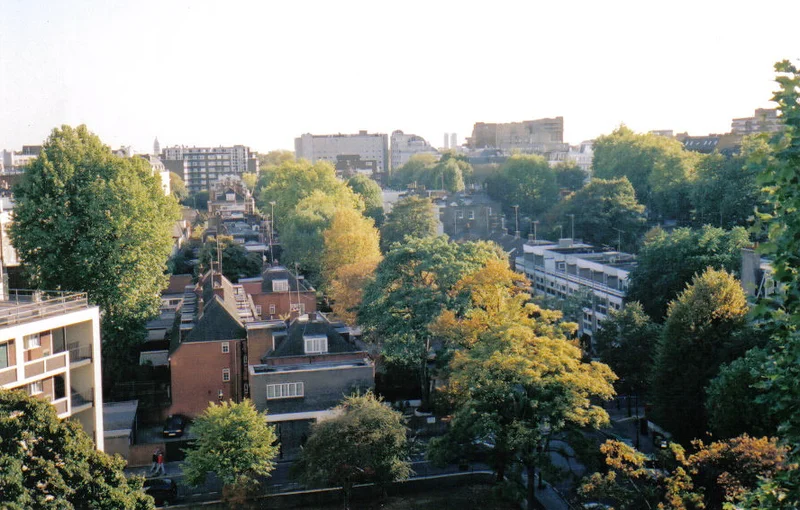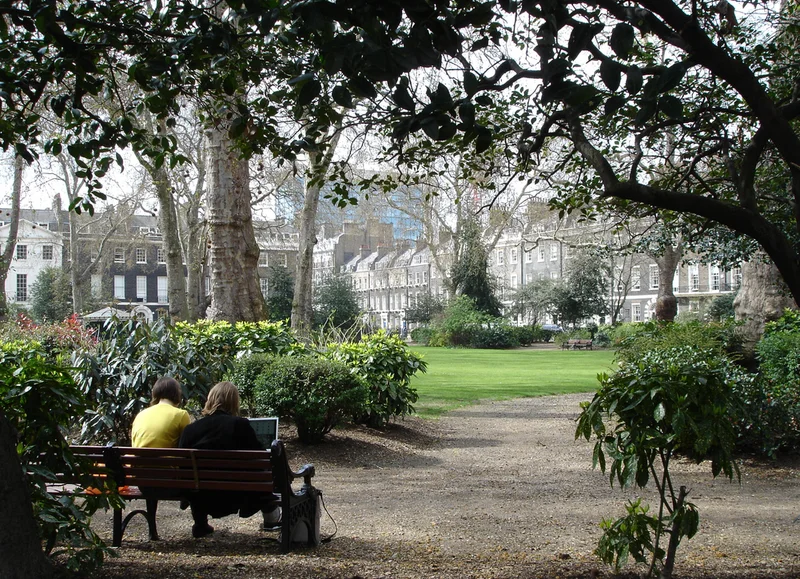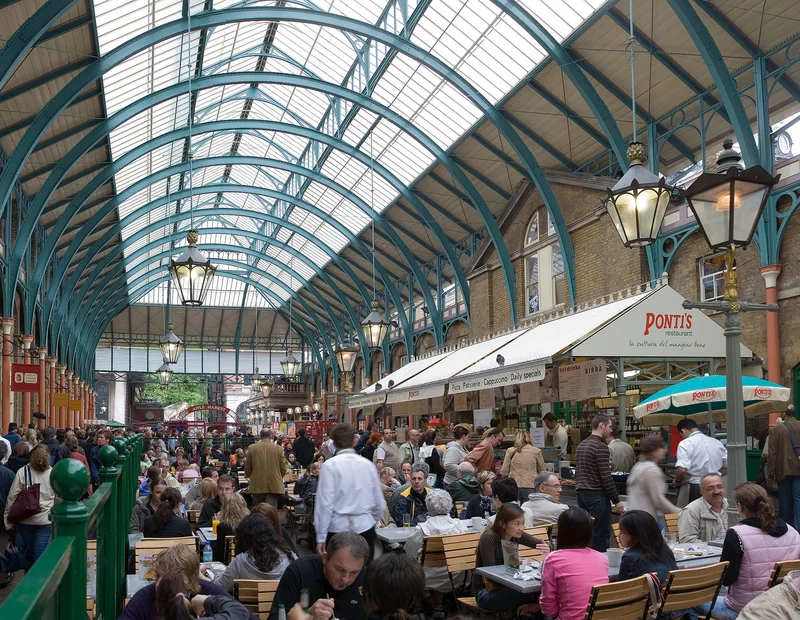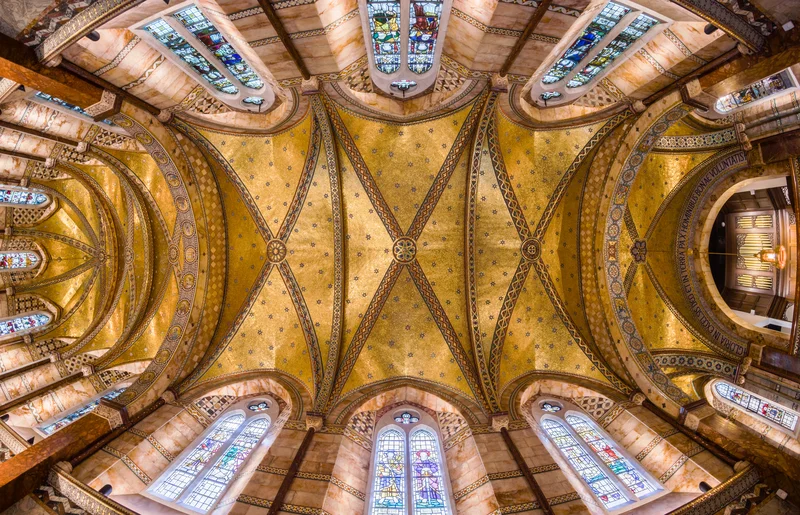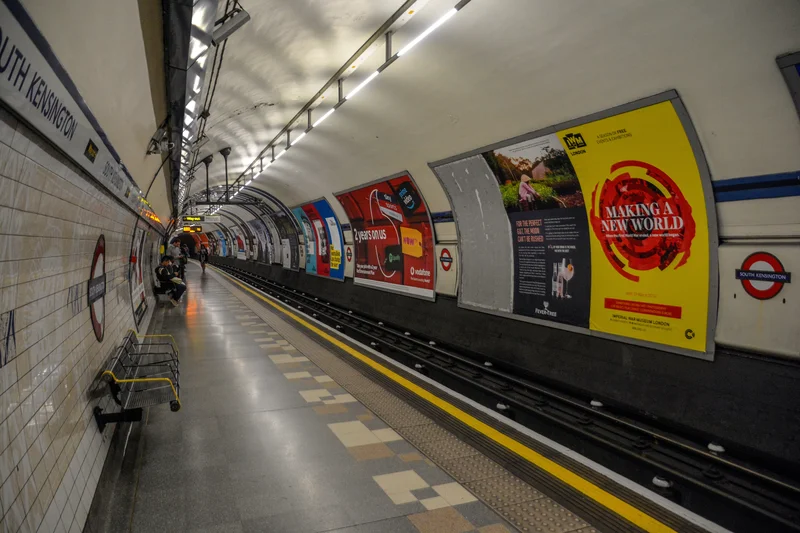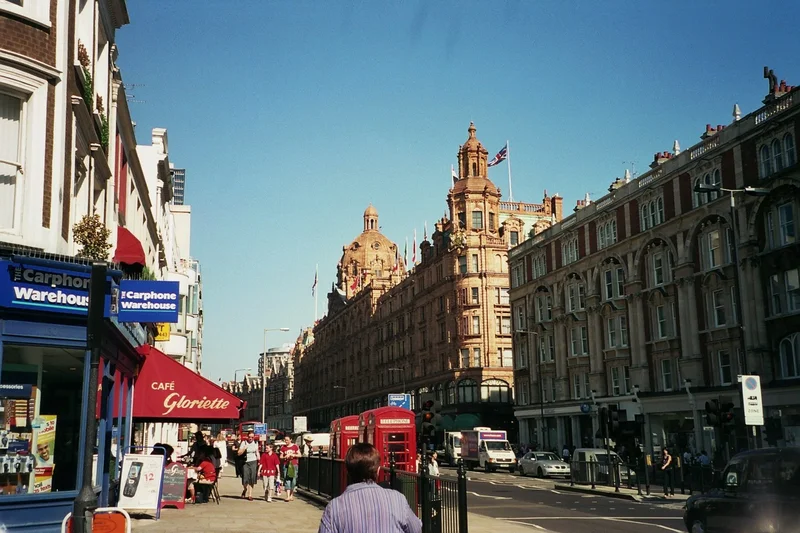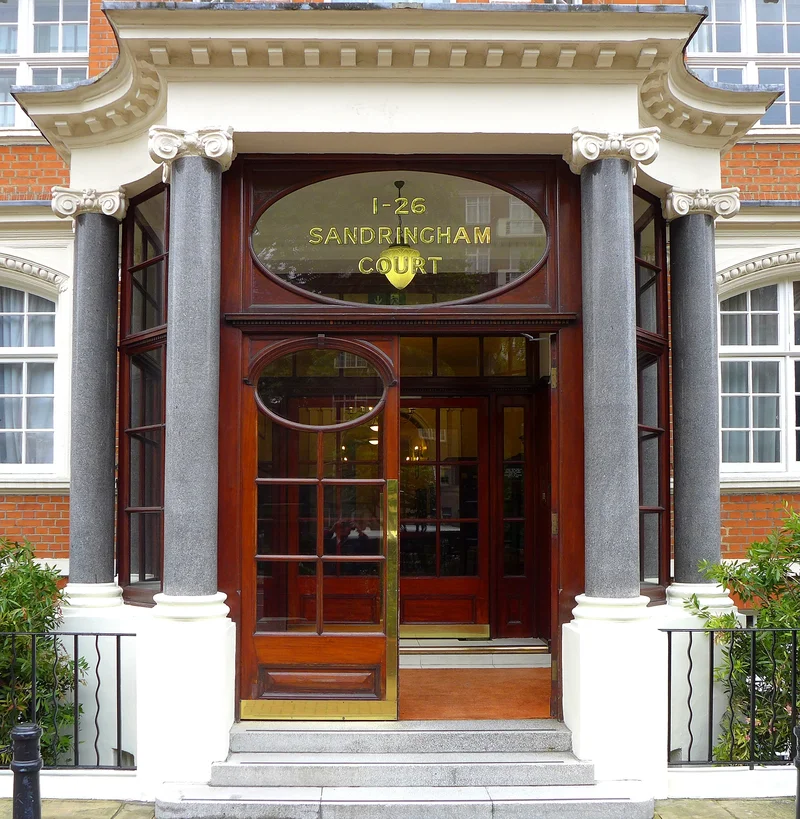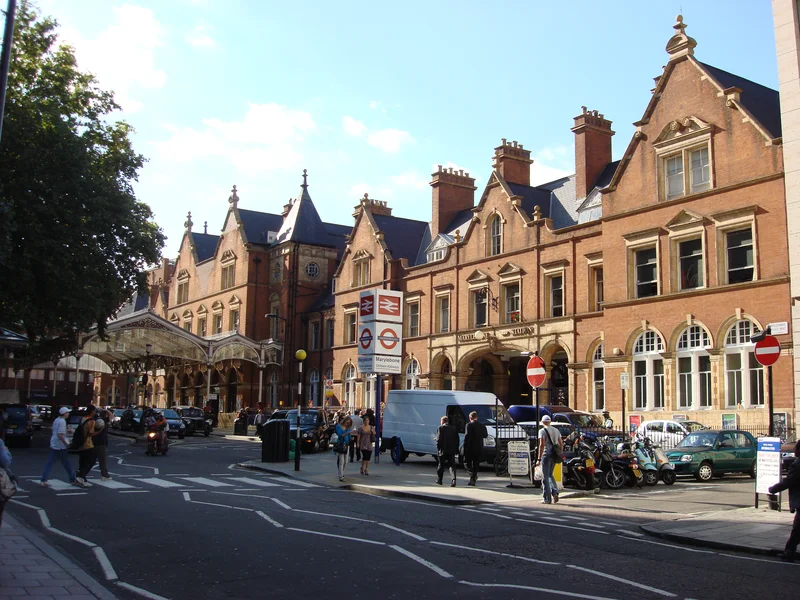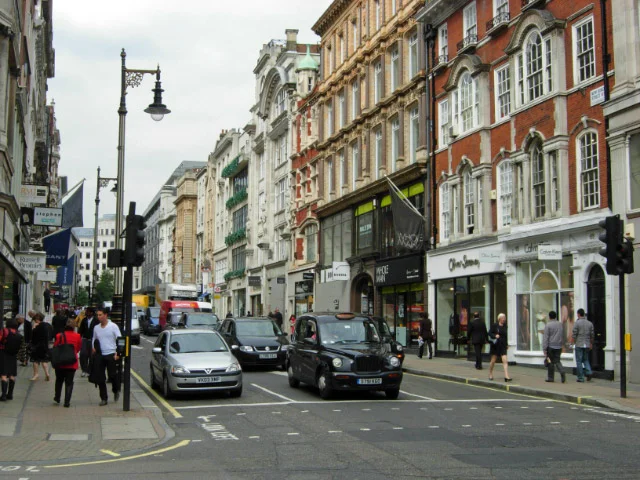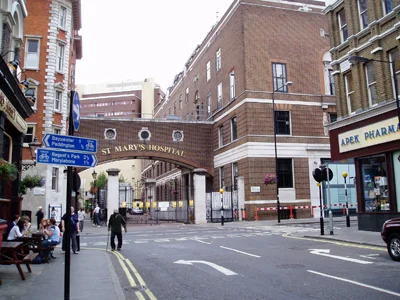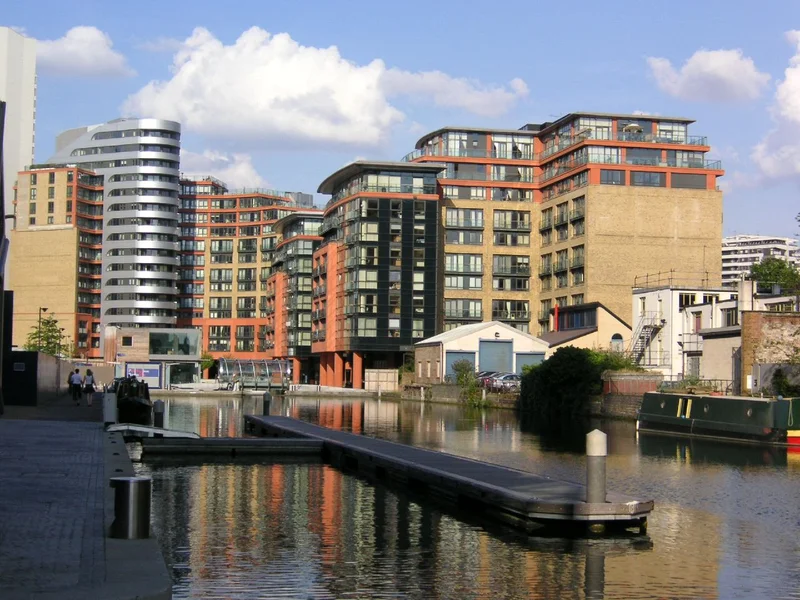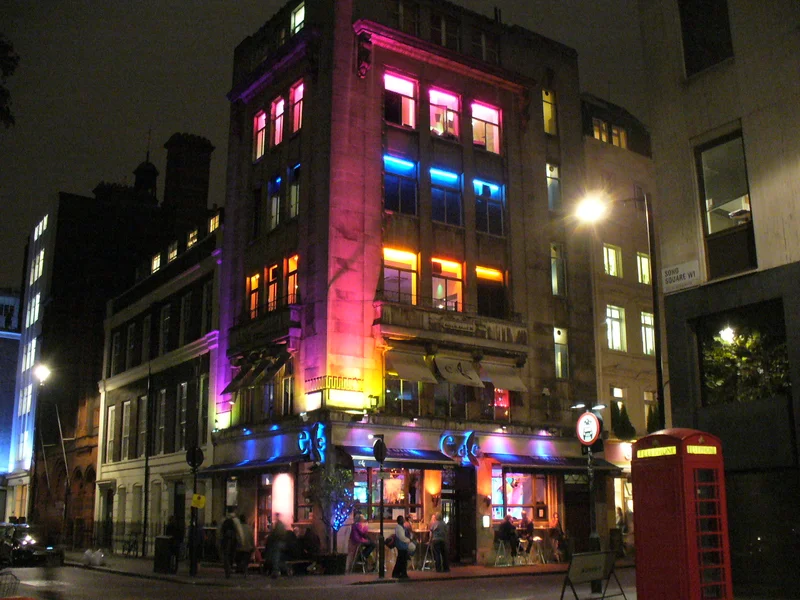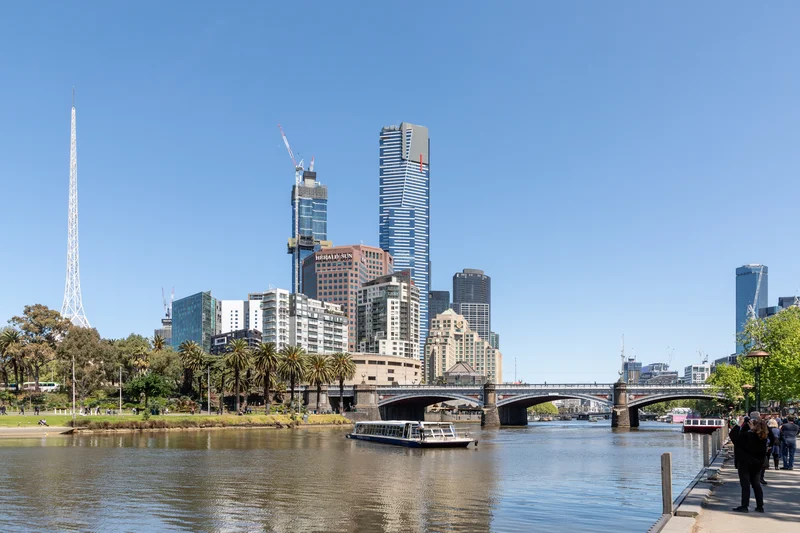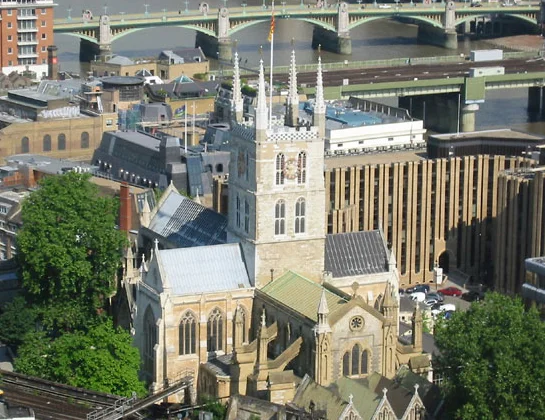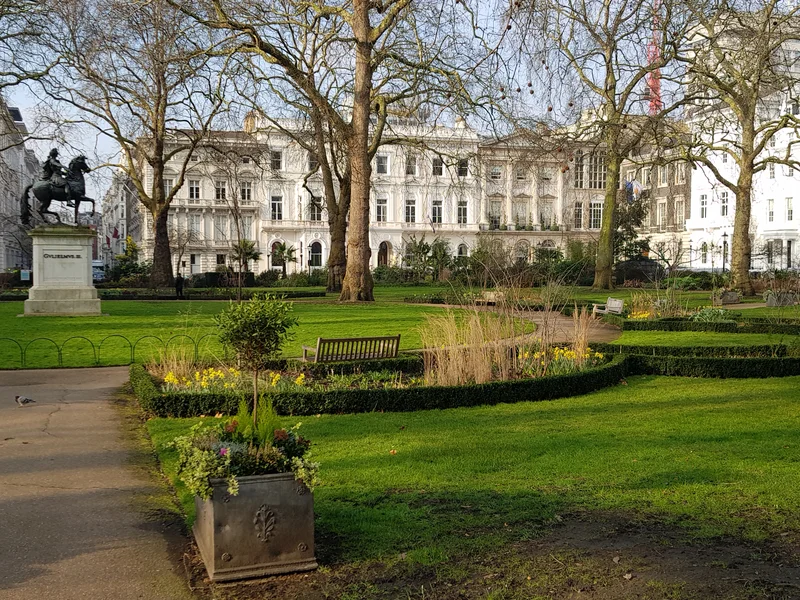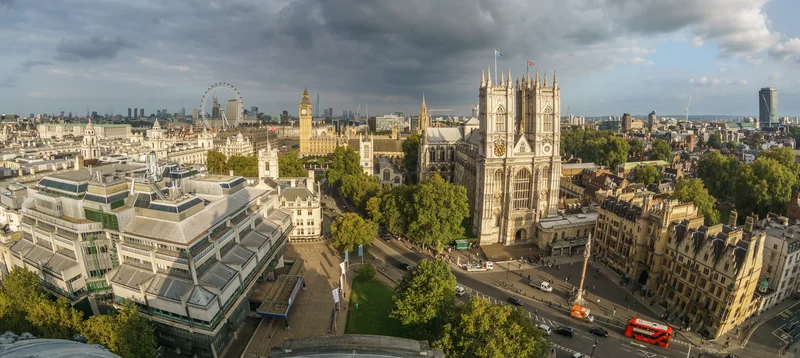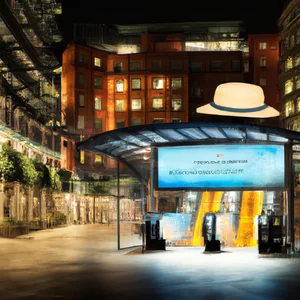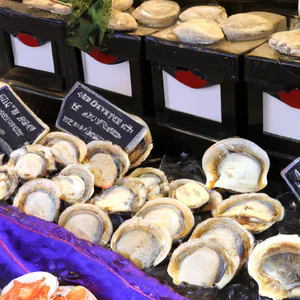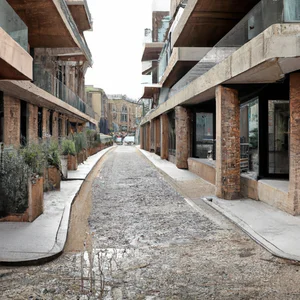Book your experience
Brockwell Park: outdoor pool, community gardens and views of London
Piccadilly Arcade: a tour of the artisan workshops in that historic arcade in St
So, let’s talk a bit about Piccadilly Arcade! If you’ve never been there, well, you’re missing a piece of history and a lot of little wonders. Imagine entering this gallery, with its warm lights and elegant arches. It’s a bit like taking a dive into the past, but with a pinch of modernity, you know?
The shops here are a real spectacle: there are artisans working by hand, selling everything from unique jewelery to creative clothes, and even things for the home that seem to have come out of a dream. I remember once meeting a guy who made pottery, and, wow, it seemed like his hands were talking as he shaped the clay. I swear, it was like seeing an artist in full action, and I thought, “Man, what a talent!”
Well, the beauty of Piccadilly is that every shop has a story to tell. Maybe one day you might come across a hat shop, where the owner tells you how his great-grandfather started making hats for nobles, and today he continues the tradition. It’s fascinating, isn’t it? In short, there is an air of passion and creativity that is rare to find.
Honestly, I’ve always thought that places like these are a bit like a hidden treasure. Sure, maybe they’re not as famous as Buckingham Palace, but who cares! You can find things here that you wouldn’t find anywhere else, and let’s face it, it’s also a great way to escape the hustle and bustle of the city. Sometimes I wonder if people really appreciate it, because it’s so easy to get carried away by the busy life and forget to explore.
However, if you decide to pop into Piccadilly Arcade, be prepared to get lost among the shop windows. I don’t know, maybe it could be a nice way to spend the afternoon, perhaps with a coffee in hand and a bag full of small artisanal wonders. Who knows, maybe you’ll even find a souvenir that tells your story.
Discover the art of ceramics in local workshops
An encounter with tradition
I still remember the scent of damp terracotta and the delicate sound of hands shaping the clay. During my visit to Piccadilly Arcade, I entered one of the small artisan workshops that dot the historic gallery. The craftsman, a middle-aged man with hands marked by work, welcomed me with a smile and a glass of tea, while he showed me his unique pieces, each telling a story. This meeting made me understand how ceramic art is a reflection of the culture and history of London, a tangible link with the past.
The art of ceramics: practical information
At the local workshops in Piccadilly Arcade, you can watch artisans at work and even take part in hands-on workshops. Many of these workshops offer one-day courses that allow you to create your own pottery piece under the expert guidance of local artists. An example is the Ceramics & Co. laboratory, which stands out for its traditional techniques and the use of sustainable materials. Book in advance on their official website to guarantee your participation.
An insider tip
A little-known tip: always ask to see local clay samples. Many artisans use clays from historic quarries around London, each with unique characteristics. Discovering this small but significant difference can enrich your understanding of ceramic art and your appreciation for the pieces you purchase.
A cultural heritage to be valorised
Ceramics has a long history in London, dating back centuries when the city was a manufacturing center for tiles and tableware. Piccadilly Arcade, with its artisan shops, plays a fundamental role in keeping this tradition alive. Each piece created here is not just a decorative object, but a testament to the resilience and creativity of an artisan community committed to preserving traditional techniques.
Sustainable tourism practices
Choosing to buy handcrafted ceramics is a way to practice more sustainable tourism. By purchasing directly from artisans, you help support the local economy and reduce the environmental impact associated with mass production. Many workshops use eco-friendly techniques and recycled materials, an aspect that is not only good for the environment but also enriches the shopping experience.
An activity not to be missed
Don’t miss the opportunity to participate in a ceramic workshop. Learning to shape clay with your own hands, while listening to stories about traditional methods, will allow you to take home not only a physical souvenir, but also a lasting memory. Some workshops also offer the option to return to have your piece fired, making the process even more engaging.
Myths to dispel
A common misconception is that handcrafted ceramics are always expensive. While there are high-end pieces, many artisans offer affordable and unique creations that are perfect for any budget. Experimenting with the art of ceramics does not have to be a luxury, but can become an experience accessible to everyone.
Final reflection
As you immerse yourself in the world of artisanal ceramics at Piccadilly Arcade, I invite you to reflect on how each of these pieces tells a unique story. What story will you take home with you? The next time you think of London, remember that the true essence of the city lies not only in the iconic monuments, but also in the laboratories where art and tradition come to life.
Discover the art of ceramics in local workshops
A personal experience in the heart of London
The first time I set foot in one of London’s ceramic workshops, the scent of damp earth and bright colors enveloped me like a warm hug. I remember watching a craftsman, with expert hands, shape a piece of clay that would become a splendid cup. This meeting was not just a moment of curiosity, but a real immersion in an ancient art that tells stories of passion and tradition.
Practical information on ceramic workshops
London is dotted with ceramic workshops, each with its own style and history. Among the best known, Turning Earth and The Kiln Rooms offer courses for beginners and workshops for experienced artists. It is always advisable to book in advance, especially on weekends, as these events fill up quickly. You can find up-to-date course information directly on their websites.
An insider tip
A little secret that few people know: many workshops offer private sessions for small groups, where you can personalize the experience. This allows you to create a unique piece under the careful guidance of the artisans, which can be an unforgettable gift or a souvenir that tells your London story.
The cultural impact of ceramics
Pottery in London is not just a craft skill; it is a reflection of the city’s history. The ceramic tradition dates back centuries, with influences ranging from Japanese culture to Chinese porcelain. Today, local workshops not only preserve these traditions, but reinvent them, mixing modern techniques with classic styles.
Sustainable tourism practices
Many ceramic workshops are committed to sustainable production, using eco-compatible materials and techniques with low environmental impact. By purchasing local ceramics, you are not only supporting the local economy, but also contributing to a greener future.
An immersive journey into color and creativity
Imagine walking into a pottery workshop: the walls are decorated with colorful artwork, while the sound of the wheel fills the air. Natural light filters through the windows, making the rooms shine clay creations. Each piece tells a story, and each artist has a message to convey through their work.
An activity worth trying
If you feel like immersing yourself in this experience, I recommend attending a pottery workshop at Turning Earth where you can create your own piece to take home. Not only will you learn the basics of ceramic art, but you will also have the opportunity to meet people who share your passion.
Common misconceptions about pottery in London
A common myth is that ceramics is an art exclusively for experts. In reality, anyone can approach this art form, regardless of skill level. The workshops are open to all, and many artisans enjoy sharing their knowledge with beginners.
A final reflection
Ceramics are not just a decorative object; it is a piece of history and culture. Next time you visit London, take a moment to reflect on how significant a simple piece of clay can be. What story would you like to tell through your creation?
Close encounters with artisans and creators
A personal experience that illuminates the soul
When I crossed the threshold of an artisan workshop in the heart of London, I never imagined I would find myself immersed in a world of creativity and passion. The smell of fresh clay, the delicate sound of the tools and the warm smile of the master ceramist welcomed me like an old friend. This meeting was not just a moment of curiosity, but a journey that enriched my understanding of local art and culture. The craftsman, with his hands dirty with clay, told stories of traditions that went back generations, making each piece unique and unmistakable.
Practical and up-to-date information
London is dotted with workshops where artisans work with traditional materials, creating works of art that reflect the city’s diversity and vibrancy. Pottery studios, such as Turning Earth and Kiln Rooms, offer open classes and workshops for all levels. These spaces are not only workplaces, but also community centers where you can learn ancient techniques and meet people with the same passion for art. For more information, visit their websites, where you will find a calendar of events and courses.
An insider tip
If you want a truly authentic experience, ask the artisans if they can show you the enamelling process. This step, often overlooked by visitors, is what makes each piece of ceramic not only beautiful, but also functional. Discovering how colors blend and transform during cooking is a lesson that will leave you speechless.
The cultural impact of ceramics
Ceramics are a key part of London’s cultural heritage. Since Roman times, ceramic manufacturing has played a crucial role in the city’s trade and daily life. Today, these workshops not only preserve traditional techniques, but also encourage sustainability and innovation, using environmentally friendly materials and responsible practices.
Sustainable tourism practices
Visiting pottery workshops is a great way to support local craftsmanship and contribute to an economy that values manual labor over mass production. Many of these spaces use recycled materials and environmentally friendly practices, making your visiting experience even more meaningful.
An immersion in the atmosphere
Imagine being surrounded by shelves full of ceramic sculptures, plates and mugs in vibrant colours. Each piece tells a story, and each artisan has a unique connection to their creations. The atmosphere is full of creativity and inspiration, and you almost feel part of an ancient tradition that continues to live and thrive.
An activity worth trying
Don’t miss the opportunity to participate in a ceramic workshop. Even if you are a beginner, there is nothing more rewarding than modeling clay with your own hands and bringing home a unique piece. Many workshops offer one-day sessions where you can learn the basics and create your own masterpiece.
Myths to dispel
A common misconception is that the art of ceramics is reserved only for experts. In reality, anyone can approach this art form. Most workshops are open to people of all ages and abilities, and the artisans are excited to share their passion and skills.
A personal reflection
After spending time with these artisans, I realized that each piece of pottery is a testament to human dedication and creativity. What story will you take home after a close encounter with a craftsman? I invite you to consider how these encounters can enrich your experience and offer you a new perspective on the art and culture of London.
Sustainable shopping: eco-friendly shopping in the gallery
An unexpected encounter
During one of my walks in the heart of London, I came across a small workshop inside the Piccadilly Arcade. Here, a craftsman was creating jewelry using recycled materials. While he spoke about his passion for sustainability, an anecdote about him struck me: each piece told a story, not only that of its creator, but also that of the recovered materials. This chance encounter opened my eyes to a new way of shopping, where every purchase can contribute to a more sustainable world.
Practical information
Today, more and more local shops and workshops are embracing the philosophy of sustainable shopping, offering products made with eco-friendly materials and responsible production methods. For example, the ‘Eco Chic’ shop in Piccadilly Arcade offers a selection of clothing and accessories made from organic and recycled fabrics. It’s a good idea to check the store’s website or their social media pages for any special events, such as sustainable materials workshops, that are held frequently.
An insider tip
A well-kept secret is that many artisans offer discounts or special packages for those who purchase directly from them. Don’t hesitate to ask! Sometimes, a simple conversation can reveal exclusive offers or unique products only available locally.
Cultural and historical impact
Buying sustainable products is not just a personal choice; it is a gesture that supports an artisan tradition that has its roots in London culture. In recent years, the city has seen a renewed interest in local craftsmanship, promoting practices that respect the environment and celebrate cultural heritage. This movement not only supports the local economy, but also encourages greater awareness about the impact of our consumer choices.
Sustainable tourism practices
When you choose to shop in eco-friendly shops, you contribute to more responsible tourism. Many of these workshops and boutiques use eco-friendly materials and ethical manufacturing practices, reducing the carbon footprint of your trip. Furthermore, many of them are engaged in initiatives that promote community well-being and heritage conservation.
An experience worth trying
For an authentic experience, I recommend taking a jewelry or pottery making workshop at one of the local workshops. Not only will you have the opportunity to bring home a unique piece, but you will also learn artisan techniques and the value of manual work.
Myths and misconceptions
A common misconception is that sustainable purchases are always more expensive. In fact, many artisans offer products at competitive prices, highlighting the quality and durability of their items. Investing in a sustainable product often means saving in the long term, thanks to its durability and resistance.
Final reflection
The next time you find yourself shopping, I invite you to reflect on what shopping really means. Every object has a story and an impact; choosing consciously can transform your shopping experience into an act of love towards the planet. What stories will you discover in your eco-friendly purchases?
Culinary delights: savor artisanal products
An experience to remember
The first time I stepped into a local London market, the scent of fresh spices and sweets enveloped me like a warm hug. Among the colorful stalls, an artisan was preparing his famous naan bread, and invited me to try a warm, freshly baked piece. That simple interaction opened a window into a world of culinary delights worth exploring in the city’s galleries and artisan markets.
Discover local flavors
London is a melting pot of cultures and culinary traditions, and artisanal products represent the beating heart of this diversity. From traditionally aged cheeses to handmade desserts, every bite tells a story. Some of the places not to be missed include Borough Market, famous for its local producers, and Camden Market, where you can find dishes from all over the world.
For practical information, I recommend you visit the London Food Tours website, which offers an updated list of the best markets and artisan producers to discover.
An insider tip
If you want a truly unique experience, look for small street food stalls that don’t appear in tourist guides. Often, these vendors offer dishes that speak to their family history and cultural roots. For example, don’t miss the opportunity to try Sicilian arancini in a hidden corner of East London, prepared according to a recipe that has been passed down for generations.
The cultural impact of artisanal gastronomy
Artisanal cuisine isn’t just about flavour, it’s also a reflection of London’s cultural heritage. The culinary tradition is rooted in the city’s history, with influences ranging from colonizers to migrants, each of whom has left their own mark. This mosaic of cultures is what makes London’s food scene so vibrant and dynamic.
Sustainability on the table
Many culinary artisans in London are adopting sustainable practices, using local and seasonal ingredients, and minimizing waste. Choosing to enjoy these products not only supports the local economy, but also contributes to the health of the planet. As you explore, look for brands that emphasize sustainability – this small gesture can make a big difference.
An activity worth trying
For an unforgettable experience, take part in an artisanal cooking workshop, where you can learn to prepare typical dishes together with an expert. Many of these courses also offer tastings and stories behind the recipes, giving a unique perspective on London’s food culture.
Myths to dispel
A common misconception is that London cuisine is monotonous or uncreative. In fact, the variety of dishes and culinary styles that can be found is astonishing, and every corner of the city has something unique to offer. Don’t be fooled by appearances; a treasure of flavors can hide behind every corner.
Final reflection
Next time you’re in London, take a moment to explore the markets and culinary workshops. What flavor will strike you the most? The gastronomic adventure is a journey that can change your perception of the city, turning every bite into an unforgettable memory.
A guided tour: stories behind the shops
A personal experience
I still remember my first visit to London, when I ventured into a small alleyway in Covent Garden. Among souvenir shops and crowded restaurants, I discovered a ceramics workshop. Upon entering, I was greeted by the smell of fresh clay and a smiling craftsman who was modeling the clay with expert hands. That chance encounter opened up a world of stories and traditions to me, revealing a side of London that passing tourists often overlook.
Practical information
For those who want to delve deeper, there are guided tours that focus on the city’s artisan workshops. Local organizations such as London Craft Week offer itineraries that take us to discover historic workshops, emerging artists and shops that preserve the soul of London. It is advisable to book in advance, especially in the high season months, to secure a place on these exclusive tours.
An insider tip
A little-known tip is to ask artisans to share personal stories or anecdotes about how they started their journey. Often, these narratives offer a fascinating look at how a passion for art intertwines with daily life and social changes in the city. Don’t hesitate to ask questions; artisans love to share their story and their creative process.
Cultural and historical impact
London’s artisan heritage dates back centuries, but is constantly evolving. The shops, which were once simple points of sale, now serve as cultural centers where tradition and innovation intertwine. The valorization of these realities offers a new vision on the history of the capital, highlighting the importance of preserving traditional crafts in an era of mass production.
Sustainability and responsibility
Many London artisans embrace sustainable practices, using recycled materials and eco-friendly techniques. Choosing to participate in these tours not only enriches your experience, but also supports a community that is committed to protecting the environment. For example, some workshops offer the possibility of creating objects using local clay, thus reducing the environmental impact.
Immersion in the atmosphere
Imagine walking through the cobbled streets, surrounded by the sound of work tools and the chatter of artisans intent on creating their works. Each shop has its own unique character, from those displaying colorful ceramics to those dedicated to glass making. The passion and energy that permeate these spaces are contagious and will make you feel part of something special.
Activities to try
During the tour, don’t miss the opportunity to participate in a hands-on pottery lesson. Many artisans offer workshops where you can create your own unique piece under their expert guidance. It’s a wonderful way to immerse yourself in local culture and take home a handmade souvenir.
Myths and misconceptions
A common misconception is that artisan workshops are only accessible to a limited elite. In fact, many artisans are happy to share their work and stories with anyone who is interested, regardless of budget. The key is to approach with curiosity and openness.
Final reflection
After exploring the world of artisan workshops, I wonder: how often do we stop to consider the stories and hands behind the objects we purchase? Each piece has its own story, a connection with the place where it was created. Next time you’re in London, take a moment to explore these handcrafted wonders; you might discover something unexpected and fascinating.
The importance of London’s cultural heritage
An immersive personal experience
Walking through the crowded streets of London, I found myself in a little-known alley, where the scent of fresh ceramics mixed with the crisp city air. Here, in an artisanal ceramics workshop, I had the opportunity to observe a master craftsman as he shaped clay with a grace that seemed almost magical. This chance meeting opened my eyes to the importance of London’s cultural heritage, a priceless treasure that tells stories of tradition, innovation and passion.
Practical information
London is a city rich in history and culture, and its heritage is jealously guarded in workshops, galleries and artisan workshops. For those looking to explore this authentic side of the capital, London Craft Week is an unmissable event, where local artisans open their doors to share their knowledge. I recommend you check the official website (londoncraftweek.com) for scheduled dates and events.
An insider tip
A little-known tip: don’t limit yourself to visiting only the most famous laboratories. Often, smaller workshops, away from tourist routes, offer more authentic experiences and opportunities to interact with artisans. An example is Bermondsey, an emerging neighborhood that hosts a series of studios and workshops where the art of ceramics is still alive.
Cultural and historical impact
London’s cultural heritage is not just a collection of historic buildings, but is also a reflection of its social evolution. Ceramics, in particular, has deep roots in the city, dating back to Roman times. Today, it represents a tangible link between past and present, embodying London’s artistic identity and innovative spirit.
Sustainable tourism
Participating in ceramic workshops is not only a way to immerse yourself in culture, but it is also an act of sustainable tourism. Purchasing works created by local artisans supports community economies and reduces the environmental impact compared to purchasing industrial products. Choosing to invest in unique pieces also means enhancing local art and tradition.
Immerse yourself in the atmosphere
Imagine yourself in a laboratory, surrounded by works of art that shine under the warm light of the lamps. The hands of the artisans, covered in clay, work with passion and dedication, while telling stories of past creations and future dreams. It is an experience that stimulates the senses and enriches the soul.
Activities to try
For hands-on experience, book a pottery workshop at one of London’s many studios. You will be able to create your own unique piece, while learning from master craftsmen. This will not only allow you to take home a tangible memento of your experience, but will also give you a new respect for the art of ceramics.
Clear up misunderstandings
A common myth is that London’s cultural heritage is only accessible to those with an artistic background. In reality, the beauty of this heritage is that it is open to all; everyone can approach London culture and appreciate its richness, regardless of their background.
Personal reflection
As I reflect on my experience among the London workshops, I ask myself: how willing are we to discover and enhance the stories that hide behind every creation? In an increasingly globalized world, rediscovering authenticity and cultural heritage offers us the opportunity to connect with our roots and the communities around us. What stories might you discover by visiting London’s shophouses?
Tips for a unique shopping experience
The first time I stepped into Piccadilly Arcade, I was greeted by an atmosphere rich in history and craftsmanship. I remember meeting a watchmaker who, with patience and skill, was repairing an ancient pocket watch. His passion for the craft shone through in every movement, making the experience not just a moment of shopping, but a real life lesson.
Discover hidden treasures
To enjoy a unique shopping experience in Piccadilly Arcade, I recommend you take the time to explore each shop. Each shop tells a different story, and the artisans are often happy to share their knowledge with visitors. Don’t just scroll through the shop windows; come in, talk to the owners and discover the creative process behind their products.
A useful tip is to visit the gallery during the less crowded hours, preferably in the morning. This way, you will have the opportunity to interact with the artisans without rushing and appreciate their art in a more peaceful environment.
The cultural impact
Piccadilly Arcade is not just a shopping location; it is a symbol of London’s artisan heritage. Each workshop is a witness to traditions that have their roots in the past, helping to keep alive the techniques and crafts that would otherwise risk disappearing. The gallery represents a refuge for quality craftsmanship, in an era in which the mass market often prevails over customization and originality.
An exclusive tip
If you are looking for a truly unique experience, don’t miss the chance to participate in a ceramics workshop offered in one of the local workshops. This will allow you to get your hands dirty and learn directly from the artisans, returning home with a creation made by you. It’s a way to fully immerse yourself in London’s craft culture.
Sustainable tourism practices
Opting for local craftsmanship is not only a way to bring home an authentic piece of London, but it’s also a sustainable choice. Choosing handmade products often means supporting small businesses and responsible manufacturing practices. Every purchase in Piccadilly Arcade helps to preserve these traditions and support the local economy.
Final reflection
As you stroll along the elegant shop windows of Piccadilly Arcade, take a moment to reflect: what does the art of craftsmanship mean to you? Once you have discovered the secrets of these historic workshops, you will likely have a new perspective on what it means to purchase a product made with passion and dedication. Knowing the craftsman behind the item you bring home adds value that goes beyond the simple purchase. Are you ready to discover the stories behind every creation?
Events and fairs: experiencing the artisan community
When I visited Piccadilly Arcade for the first time, I came across a small craft fair taking place right inside the arcade. The liveliness of the atmosphere was contagious, with artisans displaying their unique creations, while visitors moved around curiously, exchanging ideas and compliments. It was like entering a world where every object told a story, and every craftsman was happy to share it.
Discover unique events
Piccadilly Arcade hosts regular events and fairs celebrating local craftsmanship. These events are not only an opportunity to discover unique and original objects, but also to meet the creators directly. For example, during the monthly ceramics market, you can find artisans working live, showing off their creative process and answering questions about techniques and inspirations. It’s a fantastic way to connect with the community and appreciate craftsmanship.
An insider tip
If you want an authentic experience, try to attend one of these events during your visit. Artisans not only exhibit their works, but sometimes also offer short workshops, where you can try to create a piece with your own hands. Don’t forget to bring a notebook with you, because you may want to jot down ideas and insights from these conversations.
The cultural importance
These events represent not only a way to promote the work of artisans, but also an opportunity to preserve local traditions. In an age of mass production, Piccadilly Arcade stands as a bastion of creativity and craftsmanship, allowing visitors to immerse themselves in a culture that values authenticity and originality.
Sustainable tourism practices
Participating in craft events is also a way to practice sustainable tourism. Many artisans use local materials and traditional techniques, reducing the environmental impact. Choosing to purchase a handcrafted object means supporting the local economy and contributing to a more sustainable community.
Dive into Piccadilly Arcade
Imagine strolling along the elegant windows of Piccadilly Arcade, surrounded by bright colors and the sounds of laughter and conversation. Every corner invites you to stop, to discover, to interact. Don’t miss the opportunity to visit during one of the many artisan events, where you might find the perfect gift for yourself or that special someone.
A final reflection
Have you ever thought about how enriching it can be to come into contact with local craftsmanship? Next time you visit a gallery, consider stopping and chatting with the artisans. You may find that every object has a story to tell and that every creator has a dream to share. Which unique piece would you take home as a souvenir of this experience?
Rediscover authenticity: a day as a craftsman
A Personal Experience
I still remember the first day I spent in a ceramics workshop in the heart of London. Entering that place was like crossing the threshold of a forgotten world, where every dish and every vase told a story. The air was heavy with the smell of damp earth and the scent of bright colors. The craftsman, his hands covered in clay, welcomed me with a smile and began to explain the creation process, transforming raw material into works of art. That day ignited in me a passion for the authenticity and value of manual work, an aspect often overlooked in the frenzy of modern life.
Practical Information
If you want to immerse yourself in this experience, London offers numerous pottery workshops open to the public, such as Turning Earth in Hackney, where you can take part in workshops for beginners. Sessions usually last two hours and include all the necessary equipment, from the lathe to the material. It is advisable to book in advance, especially on weekends. For updated information, you can visit their official website or check local platforms like Eventbrite.
Insider advice
A little-known tip: try to take an evening class. Often, these events attract a community of enthusiasts who share stories and techniques, creating a vibrant and collaborative atmosphere. Not only will you learn pottery techniques, but you might also make new friends.
Cultural and Historical Impact
Ceramic art has deep roots in the cultural heritage of London and the United Kingdom. Since the Victorian period, pottery has been a symbol of excellent craftsmanship. Today, ceramic workshops not only preserve these traditions but reinterpret them, creating a bridge between past and present.
Sustainable Tourism Practices
Participating in ceramic workshops is also a responsible way to travel. Many laboratories use sustainable materials and eco-friendly practices, reducing environmental impact. Choosing to support local artisans helps keep local traditions and cultures alive.
Atmosphere and Description
Imagine being in a laboratory with exposed brick walls and large windows that let in natural light. The sound of the clay turning on the wheel and the soft clink of the tools create a harmony that calms the mind. Each piece you create becomes a tangible memento of your experience, a souvenir that speaks of authenticity.
Recommended Activity
For an unforgettable experience, I recommend you try a custom dish creation workshop. Not only will you learn to work with clay, but you will also be able to take home a unique piece, made with your own hands.
Myths and Misconceptions
A common misconception is that pottery is only for experts. In fact, the workshops are designed to accommodate everyone from beginners to experienced artists. Don’t be afraid to get your hands dirty; every mistake is a step towards improvement.
Final reflection
After a day spent creating, you will realize that authenticity is not just a concept, but an experience to be had. We invite you to consider: What does it mean to you to be a craftsman, even just for a day?

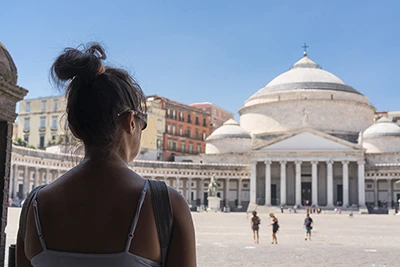 Architecture and Design
Architecture and Design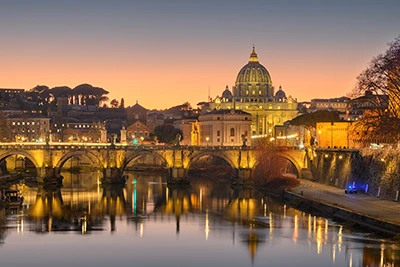 Cities and Regions
Cities and Regions Culture and History
Culture and History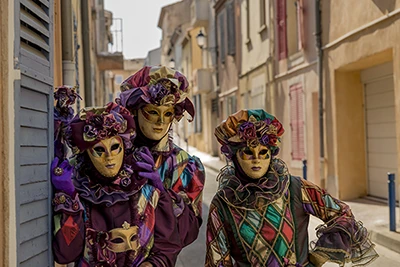 Events and Festivals
Events and Festivals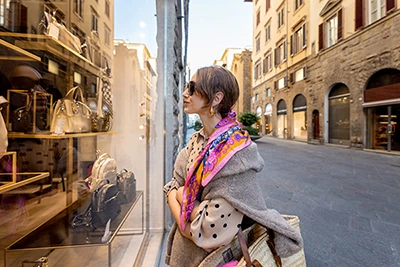 Fashion and Shopping
Fashion and Shopping Food and Wine
Food and Wine Nature and Adventure
Nature and Adventure Unique Experiences
Unique Experiences